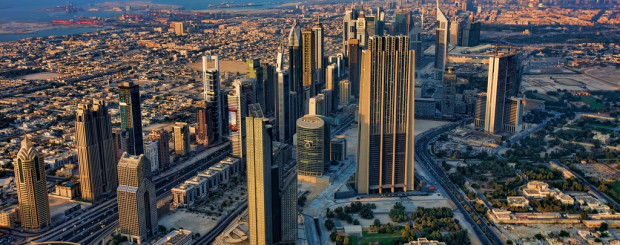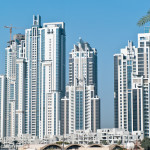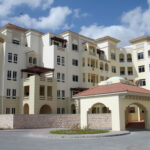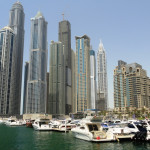How much does it cost to live in Dubai?
Dubai, with its wonderful hot climate, miles of beaches and thriving economy is a popular destination for expats from all over the world. Since the UAE is a tax free country, most expats come to Dubai expecting to make substantial savings at a relatively quick pace. However, if you are planning a move to Dubai, it would be wise to research your probable monthly expenses as the luxuries on offer in the city often result in more spending, less savings and sometimes even plunging in to debt.
Although any analysis on how much it costs to live in Dubai will vary substantially based on lifestyle and preferences, the numbers here are a good guideline on where you will be spending the chunk of your salary. These figures represent mid-range prices for those looking to live a modest, but comfortable lifestyle on a medium budget and are a good guideline for job-seekers when negotiating their salaries.
Until the economic downturn hit the city’s economy a few years ago, Dubai was a very expensive place to live with sky-rocketing rental and property prices. However, it has been getting steadily cheaper to live in Dubai with the government holding down the price of everyday commodities and a stronger US dollar helping to make life here more affordable. The monetary currency in the UAE is the Arab Emirates Dirham (AED), divided into 100 fils. The AED is pegged to the US dollar at the rate of US$ 1.00 – AED 3.67. Based on data published by the Economist Intelligence Unit (EIU), out of 131 cities surveyed, the cost of living in Dubai is 96th in 2013, a massive drop from ten years ago where it rated as the 56th most expensive city to live in. Compared to some of the most expensive cities in the world including Singapore, London and New York, the amount spent on rent, groceries and restaurants is substantially lower in Dubai than elsewhere. The Numbeo Cost of Living Comparison calculator is a very useful tool that expats can use to compare the cost of living in Dubai against that of their home country.
Two decades ago, Dubai companies were offering employees large housing and educational allowances as a part of their salary package to lure more professionals to the region. Today, however, with a fiercely competitive job market, such large allowances are becoming extremely rare. Certain items such as cars and electronic goods are often cheaper here owing to the lack of taxation and low import duties, but international food brands and household items are likely to be higher than back home. The government of UAE subsidizes most utilities such as electricity and water to make it cheaper for the local population, although air-conditioning costs are likely to be high during the scorching summer months. Let’s take a look at some of the most common expenses incurred when living in Dubai:
Rent
Like anywhere else in the world, rents in the emirate will vary significantly depending on the area you live in. Rental contracts are usually yearly contracts, renewable annually. Most landlords require the entire rent to be paid upfront and will accept two to four post-dated checks; you will also be required to pay a security deposit. Registered brokers and rental agencies, licensed by the Department of Economic Development, charge a fee that is 5% of the annual rent. Rents in popular expat areas such as Dubai Marina, Jumeirah Beach Residence (JBR) and old town Dubai, for a two bedroom apartment can cost anywhere from AED 100,000 to AED 140,000 annually, whereas a modest two bedroom apartment further out in areas such as Al Qusais and Mirdif will cost you around AED 75,000 per year. If you are single, you can share an apartment with other renters and this can significantly bring down your rental costs. Rents in Dubai account for more than 30% of annual salaries.
Utilities
When moving in to a new apartment or switching apartments, the Dubai Electricity and Water Authority (DEWA) charges a refundable connection fee of AED 1000 for standard apartments and AED 2000 for larger villa properties. Depending on the size of the apartment and personal consumption, utility bills can range from AED 1,200 per month (for a small two bedroom apartment) to AED 5,000 per month for larger properties with a lawn and garden. Air-conditioning can result in significantly higher utility bills in the summer months particularly from May to August.
Schooling
There are a variety of schools in Dubai including daycare, nurseries, primary schools and private schools that offer many different curriculums to cater to the large international population here. Primary education costs between AED 20,000 to 28,000 in schools that teach the curriculum from US, UK or Europe. International schools can be very expensive with high school costs ranging from AED 40,000 to AED 90,000. Moreover, there is a huge demand for good schools and often long waiting lists, so it is very likely that these costs will increase in the years to come.
Transport
Dubai is a city best navigated by a vehicle; while there are several modes of public transport such as taxis, the Dubai Metro, buses and water taxis, not all modes of transport connect to some of the further expanses of the city, and if you need to travel to any of the nearby emirates such as Sharjah or Abu Dhabi, having a car is a must. There are several rental agencies all over Dubai that can help with car rentals; an average small size car, such as a Toyota Yaris will cost you around AED 1,500 per month with an additional AED 400 for fuel.
Groceries
There are a variety of foods available in Dubai with several international food brands available in most supermarkets across the city. However, these can be expensive and you can buy good quality local produce and vegetables at a fraction of the cost. On average, grocery bills for a family of four will cost in the range of AED 1200 to AED 1500 monthly.
Insurance
Home insurance packages start at around AED 200 for coverage of AED 50,000 while car insurance typically costs around 4-7% of the value of the car. Healthcare is provided by most companies which provide basic coverage at hospitals and clinics, but international healthcare is highly recommended if you want to take advantage of the excellent facilities provided by many of Dubai’s excellent private hospitals.
Eating out and Socializing
It is possible to eat out fairly often in Dubai without making a big dent in your wallet as the city provides a variety of dining options to suit many budgets. Alcohol, however, is likely to be much more expensive than in your home country with a glass of wine costing around AED 35 and a bottle of beer around AED 30.
For more information on the cost of living click here to estimate whether the salary you have been offered is sufficient to support your lifestyle.








